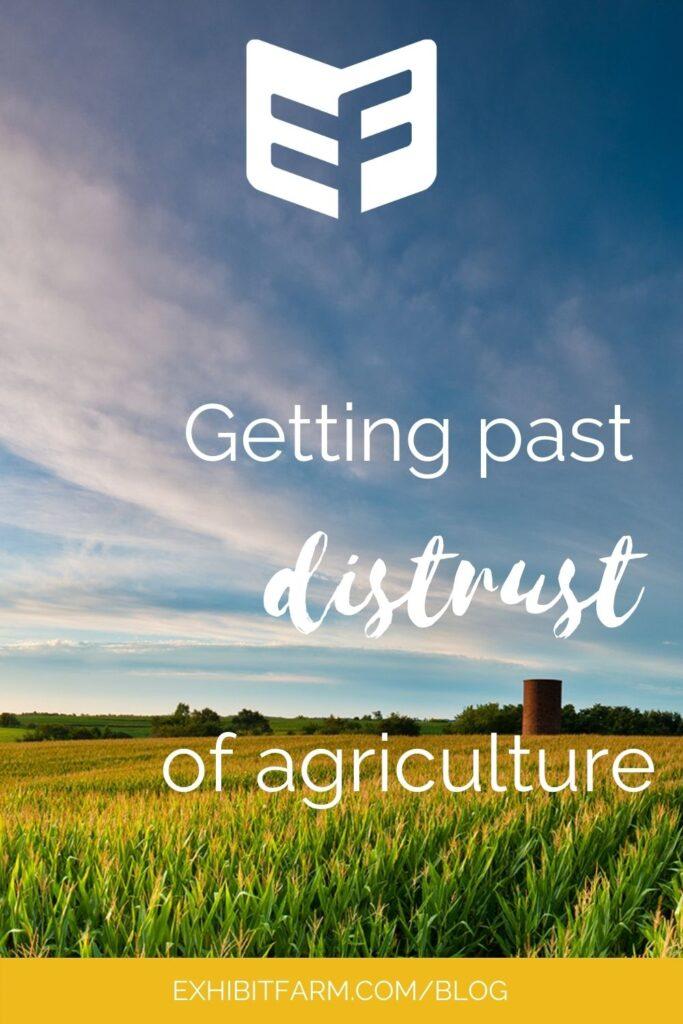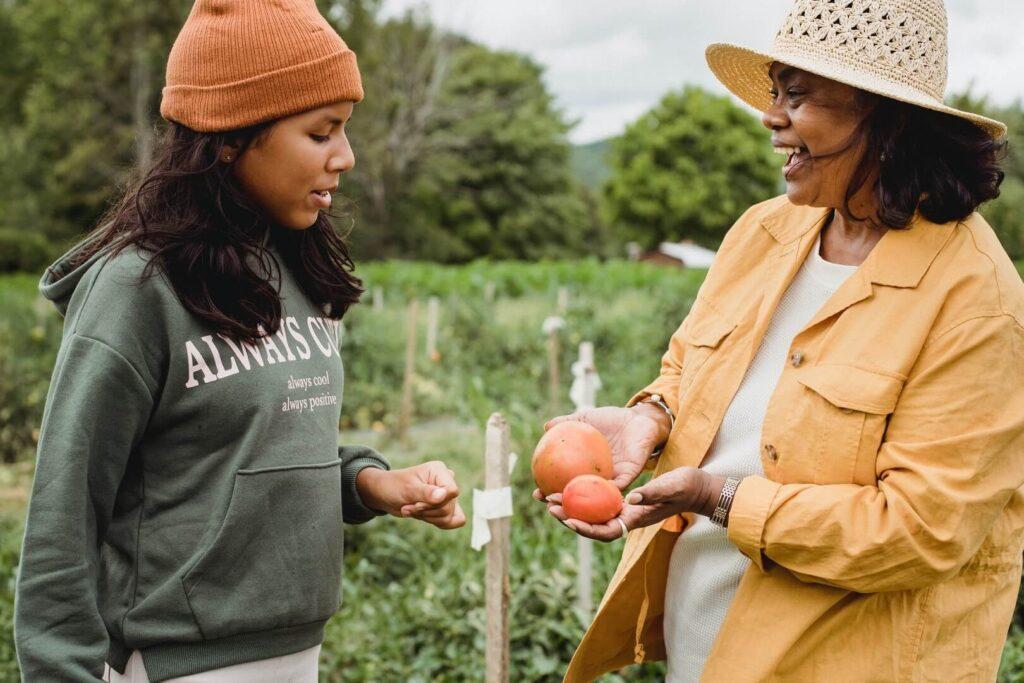
You’ve heard the arguments before. “GMOs are poison.” “Farming and ranching destroys the environment.” Whether it’s animal care, crop inputs, or cultivation methods, there are arguments against (and for) pretty much every aspect of modern agriculture.
Now, some of those arguments may have points worth taking seriously. But the one thing they all have in common is people distrusting the modern ag industry. And that’s a real problem for ag educators: You can’t help people learn more about agriculture if they don’t trust you, after all. Getting past that distrust is what we’ll talk about today.
Where Does Distrust of Modern Ag Come From?
First, what causes distrust of the agriculture industry? Untangling all the reasons is far beyond the scope of one blog post, but fear is behind many reasons. We’ve written before about how consumers’ tendency to avoid GMOs often comes down to fear and unfamiliarity.
When books, newspapers, or documentaries discuss the ag industry, it’s usually in a negative light. Books criticizing the ag industry, Americans’ eating habits, and specific agribusinesses have become increasingly popular; they’re a whole sub-genre of food book. Again, some of them may have valid comments. But whether they’re valid or not, negative media has been shown to increase consumers’ distrust of the ag industry.
Lastly, many organic food brands market their products by saying their food is safer, healthier, and more natural. This means implying — or explicitly saying — that conventionally-grown food is dangerous, unhealthy, and unnatural.
Distrusting the Farm, but Not the Farmer
Are there any silver linings for the ag industry? Surprisingly, yes. Surveys have found that over 80% of Americans — sometimes up to almost 90% — believe farmers are trustworthy. How does that fit with what we just said? Well, there’s a significant difference between how people feel about farmers and how they feel about farming. A survey by American Farm Bureau (AFB) found that while 88% of Americans trusted farmers, only about 20% had a high level of trust in modern agriculture.
One agribusiness CEO suggests that consumers may have a “romanticized” idea of farming — mental images of cheery red barns and farmers tending crops by hand, for instance. When those ideas don’t match the reality of farming today, it can keep people from trusting modern agriculture. Those outdated ideas need addressing themselves, but let’s focus on the positive side today. You can use that trust in farmers to help overcome the distrust of modern farming.

Using Personal Connections to Build Trust
The first step to overcoming distrust of the ag industry, then, is to personalize it. Encourage consumers to take their questions directly to real farmers with first-hand knowledge of the industry — then provide ways for them to do that. Sponsor events where farmers can give a talk or host a Q&A, if you can.
In the same vein, you might consider hosting farm visits (like Michigan State University’s Breakfast on the Farm program). They let consumers meet a local farmer and hear him explain exactly how his business works. These types of events are a bigger investment, to be sure, but they can really pay off.
If an event like that isn’t an option, profile farmers on your blog or social media. Maybe let a farmer take over your social media for a day, to share photos and info about his day-to-day work. Putting names and faces on something as big as “the ag industry” makes it more approachable.
Turning Distrust into Confidence
When it comes to talking about modern ag practices and tech, being honest and transparent is the best way to overcome distrust. Don’t be tempted to sweep controversies under the rug. Addressing consumers’ questions or suspicions directly shows you’re not trying to hide anything.
And when you answer questions, do your best not to take offense. There’s a lot of conflicting information about ag, and it’s not really surprising that people who don’t understand it would be wary. Most of us feel wary about things we don’t understand.
Now, the American Farm Bureau survey also showed that 49% of Americans “somewhat” trusted agriculture, and another 12% simply wasn’t sure. That’s a lot of people (about 60% of the country) who are open to being persuaded. Taking their questions seriously; giving them accurate, fair information; and helping them connect with real farmers — these could help turn distrust of the ag industry into greater confidence and respect.
